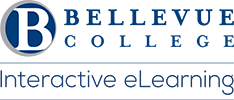
Online Learning Vision
Online Learning expands access to education options and pathways for students through quality online, hybrid, and web-enhanced courses by embracing innovative and accessible modes of course development and delivery.
Interactive Learning Mission
Our Online Learning includes providing faculty guidance to enhance online content, encourage the creative application of technology, offer instructional design consultations, and facilitate instructor-led, self-paced, and in-person Canvas workshops for faculty and students.
Our Digital Learning Design include Instructional Technologists, Instructional Designers, and the eLearning team members who provide faculty guidance and training to build online content for effective student engagement and retention.
Our Multimedia Services include Multimedia and eLearning team members, who support instructional goals by providing the latest reliable presentation technology support for college meetings, conferences, and campus programs for faculty, staff, and students.
Our XR Lab s committed to the application of new virtual reality and simulation technologies as tools for thought, providing students opportunities to augment their learning through immersive, multi-sensory experiences.
Connected Learning Mission
The Connected Learning Division is dedicated to connecting Bellevue College students, faculty, and staff to valuable learning resources on campus, off campus, and online. Each department within Connected Learning creatively empowers learners by providing equitable access to experiential courses, comprehensive learning resources, inclusive academic, career, and technology support, and unique opportunities for collaboration and community building. The division’s dynamic programs, courses, and experiences promote accessible, innovative, and transformational learning to meet the diverse needs of our college community and beyond.
Bellevue College Mission
Bellevue College is a student-centered, comprehensive, and innovative college, committed to teaching excellence, that advances the life-long educational development of its students while strengthening the economic, social, and cultural life of its diverse community. The college promotes student success by providing high-quality, flexible, accessible educational programs and services; advancing pluralism, inclusion, and global awareness; and acting as a catalyst and collaborator for a vibrant region.
Accreditation
Bellevue College is accredited as a baccalaureate degree-granting institution by the Northwest Commission on Colleges and Universities (NWCCU), a regional accrediting body recognized by the U.S. Department of Education. NWCCU accreditation was most recently reaffirmed in 2019. Several programs at Bellevue College have also earned discipline-specific accreditation through professional organizations that ensure quality education. Accreditation reports
Bellevue College Core Themes
Student Success – Teaching and Learning Excellence – College Life and Culture – Community Engagement and Enrichment
Student Success
BC supports the success of all students in meeting their educational goals through its commitments to open-access learning; to offering a portfolio of appropriate and well-chosen educational programs, services, and activities; and its ongoing attention to student persistence and educational attainment.
Teaching and Learning Excellence
BC prepares and enables excellence in teaching and learning through its commitments to ensure relevance, responsiveness, and inclusiveness of curriculum; to maintain an effective teaching environment by supporting the teaching and professional achievement of all faculty; to provide for the accessibility of quality learning support services; and to monitor the academic and professional success of all students.
College Life and Culture
BC values a learning and working environment through its commitments to support a campus environment that is diverse, inclusive, open, safe, and accessible; to model a college community that affirms and embodies pluralism and values collaboration and shared decision-making; and to honor and practice sustainability, creativity, and innovation.
Community Engagement and Enrichment
BC strives to be a leader and partner in building a strong and vibrant region through its commitment to collaborate with businesses, industries, local school districts, primary transfer institutions, alumni, donors, and governmental and social services organizations to develop and refine educational programs that prepare individuals for academic success, employment, and lifelong learning; and to provide programs and space for use by the community at large.
Last Updated March 1, 2024
